 The New York Public Service Commission needs to hear from you about the Comcast-Time Warner Cable merger. Unlike some of the southern and midwestern states that have utility commissions that basically rubber stamp the agenda of Big Telecom companies, New York’s PSC has a reputation for being tougher and more customer-oriented. But the PSC cannot act in your interest if you don’t share your views.
The New York Public Service Commission needs to hear from you about the Comcast-Time Warner Cable merger. Unlike some of the southern and midwestern states that have utility commissions that basically rubber stamp the agenda of Big Telecom companies, New York’s PSC has a reputation for being tougher and more customer-oriented. But the PSC cannot act in your interest if you don’t share your views.
It is incredibly easy to file your own comments with the PSC. Nearly 2,300 New Yorkers have done so thus far, but we need to make sure they understand our serious objections to Comcast’s usage caps, its expensive service, and customer abuse.
We have provided a sample letter below. We hope you will write your own, but offer ours as a guide that includes some of our biggest concerns. We may prepare another one soon outlining other concerns.
How to file your comment:
- E-Mail: [email protected]
- Mail: Hon. Kathleen H. Burgess, Secretary, Public Service Commission, Three Empire State Plaza, Albany, New York 12223-1350.
- Phone: 1-800-335-2120 (press “1” to leave a recorded comment)
All comments should refer to “Case 14-M-0183, Petition of Comcast Corporation and Time Warner Cable Inc.”
Hon. Kathleen H. Burgess
Secretary
Public Service Commission
Three Empire State Plaza
Albany, New York 12223-1350
Re: Case 14-M-0183, Petition of Comcast Corporation and Time Warner Cable Inc.
Dear Ms. Burgess,
I am writing to ask the Public Service Commission to reject the merger proposal of Comcast and Time Warner Cable on the ground the companies have failed to show such a merger would be in the best interests of New York and its residents.
Although Time Warner Cable has never been a prize, Comcast’s reputation for bad service, high prices, rationed Internet access, and customer abuse is well documented in just about every community the company serves. Comcast has repeatedly been voted the “Worst Company in America” by Consumer Union’s Consumerist.com. The American Consumer Satisfaction Index has documented so many complaints about Comcast, it declared it the worst company it has ever scored, performing even worse than the Internal Revenue Service. For more than three years running, Harris Interactive has called Comcast one of the least reputable companies in America.
That alone should be enough to reject this merger out of hand. Permitting it would reward this company’s appalling behavior towards its own customers and expose New Yorkers to an even bigger monopoly problem than we deal with now. Unless you live in a Verizon FiOS service area, cable is your only real choice for true broadband speeds. DSL is rapidly losing favor and market share and Verizon has shown no interest in expanding it.
Comcast already uses its market power to its advantage by raising prices… a lot. Time Warner Cable charges less for its services than Comcast does.
For example, Time Warner Cable offers a standard television service package that provides all the popular cable networks for one price. Comcast offers a similar package but stripped out cable networks including Cloo, CNBC World, Al Jazeera America, Discovery Fit & Health, Disney XD, DIY, a range of ESPN’s extra networks, EWTN, Fine Living, Fox Business News, Great American Country, IFC, Investigation Discovery, Lifetime Real Women, Military Channel, MLB, most of MTV’s extra networks, NBA, National Geographic Channel, NFL Network, NHL Network, most of Nickelodeon’s extra networks, OWN, Oxygen, Sundance, Turner Classic Movies, The Science Channel, and VH1′s extra networks.
Customers who want these networks, like Turner Classic Movies, National Geographic, and IFC will have to pay a stunning price of up to $86 a month — just for television. Many of these networks are especially popular with fixed income older residents, who will now face an even larger cable TV bill.
Comcast promotes the fact its Internet speeds are faster than Time Warner Cable, but that is not true as Time Warner Maxx upgrades arrive. Comcast Internet service costs more, is slower, and increasingly usage-capped. Time Warner Cable has made clear it will not limit customers’ Internet usage. Comcast has made clear it will, predicting usage limits/usage-based pricing will be imposed on customers across its entire footprint within five years. That is no improvement for New York. That is literally a downgrade. We can do better in New York with Time Warner Cable.
In fact, the company has promised extremely little to New York after winning your approval to merge. Comcast is so arrogant, it already announced it will not share any cost savings with customers, promising even higher cable bills for New York with the merger. Even its touted X1 set top system will cost New Yorkers — it comes with a steep installation price of almost $100. Again, how does this serve the public interest?
Comcast’s public service programs are also woefully inadequate. Its Internet Essentials is a bureaucratic nightmare that only provides temporary discounts to a small percentage of customers (with school age children) who need an affordable Internet option. I guess childless couples and the elderly poor don’t matter. Time Warner Cable offers a $14.99 discount program available to anyone who wants it, no paperwork or waiting periods required.
It is my understanding Comcast must prove this merger is in the public interest to win your approval. It has utterly failed to do so, and I expect my state’s Public Service Commission to reject this merger. This is one deal that can never be modified sufficiently to make it acceptable for people like myself. You are doing us no favors trying to negotiate for an Internet discount program or expanding Comcast’s service area by a small amount in rural upstate New York. The end result is that millions of New Yorkers will get worse service than we get today, at a higher price, with little/no competition on the horizon.
This is a rare opportunity for our state, which lost most of its oversight powers over the cable industry years ago. Cable operators have abused their deregulated status and have raised prices, provided dreadful customer service, and have kept competition away. Letting Comcast into New York from Buffalo to the Bronx will only encourage more abuse, wreaking havoc on New York’s growing digital economy. Let’s send a clear message to Comcast New York isn’t willing to put our broadband future in the hands of “the worst company in America.” Let’s make it clear enough is enough.
Sincerely,


 Subscribe
Subscribe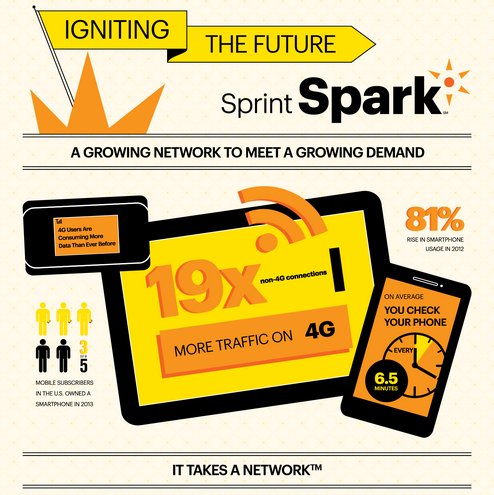
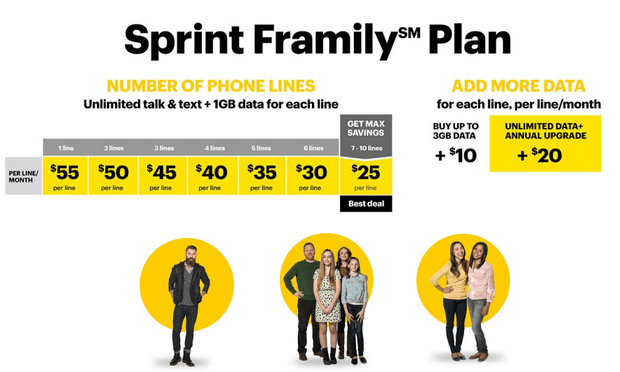

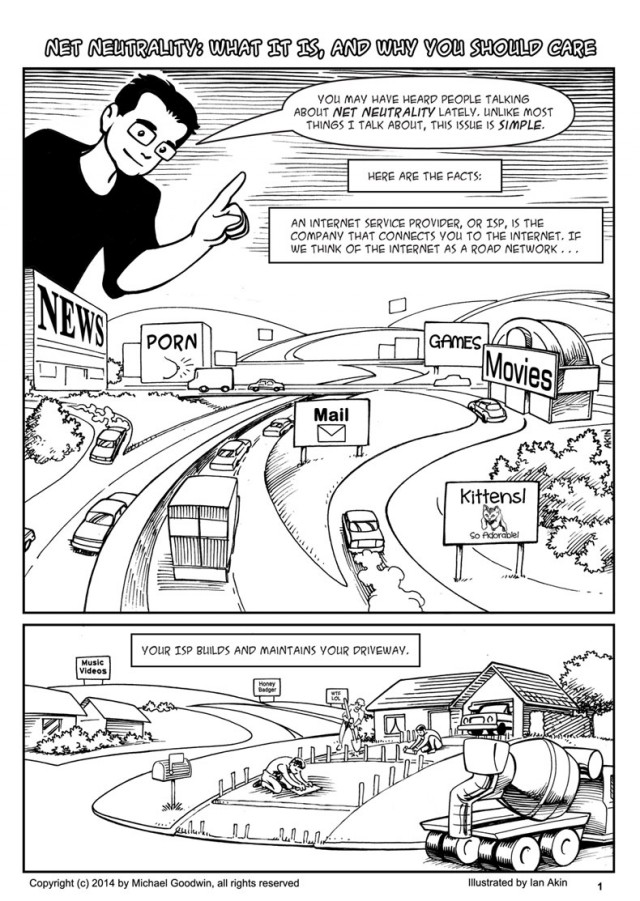
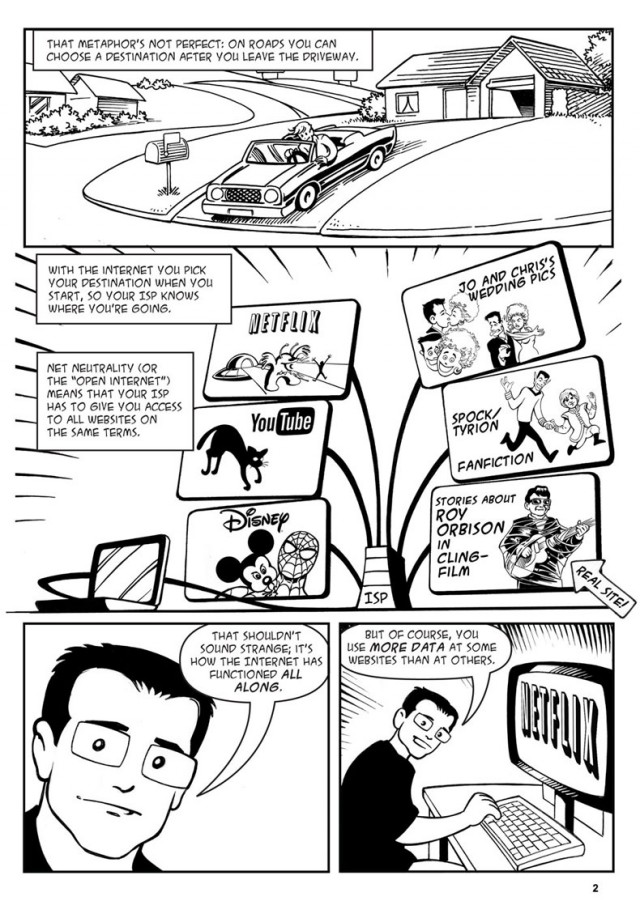
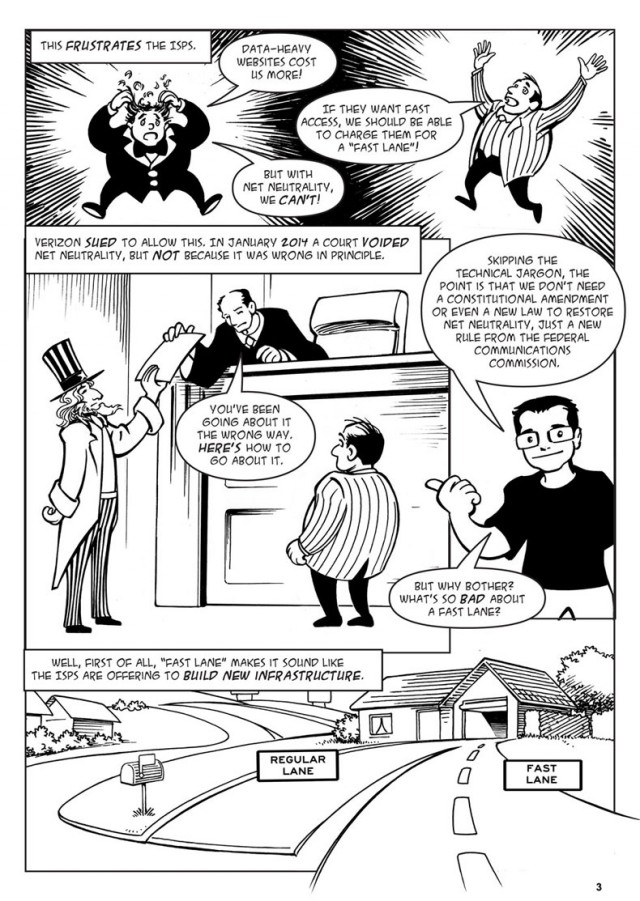
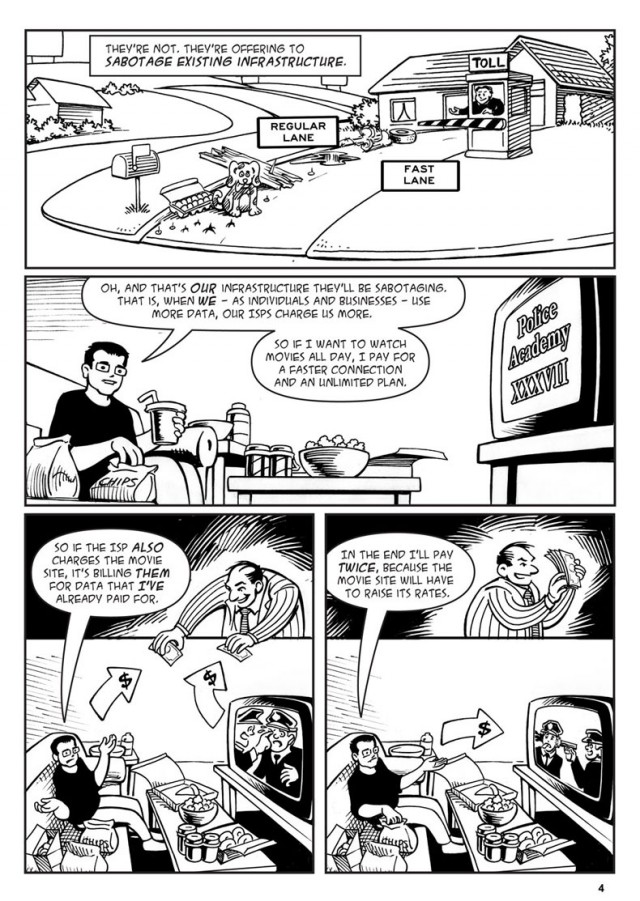
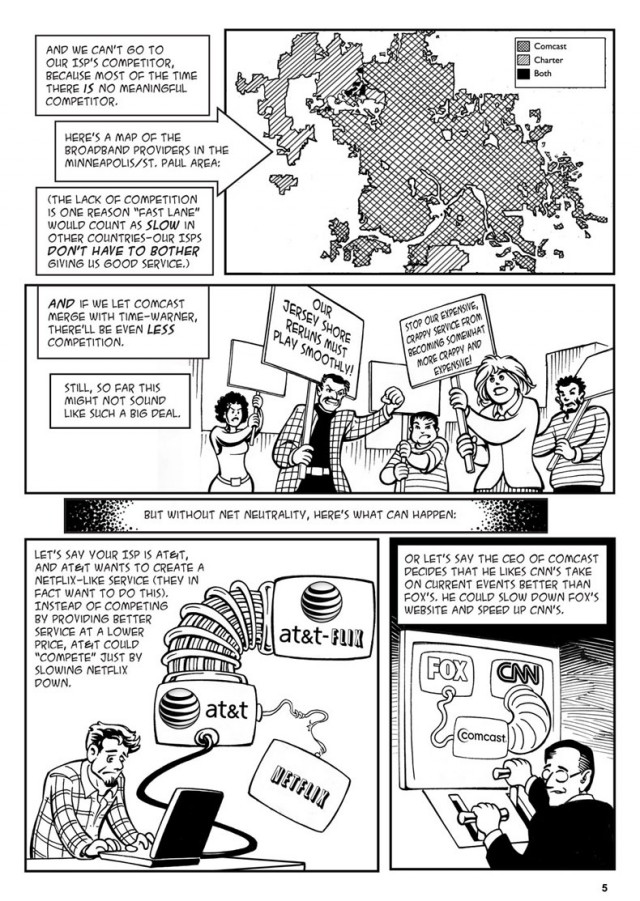
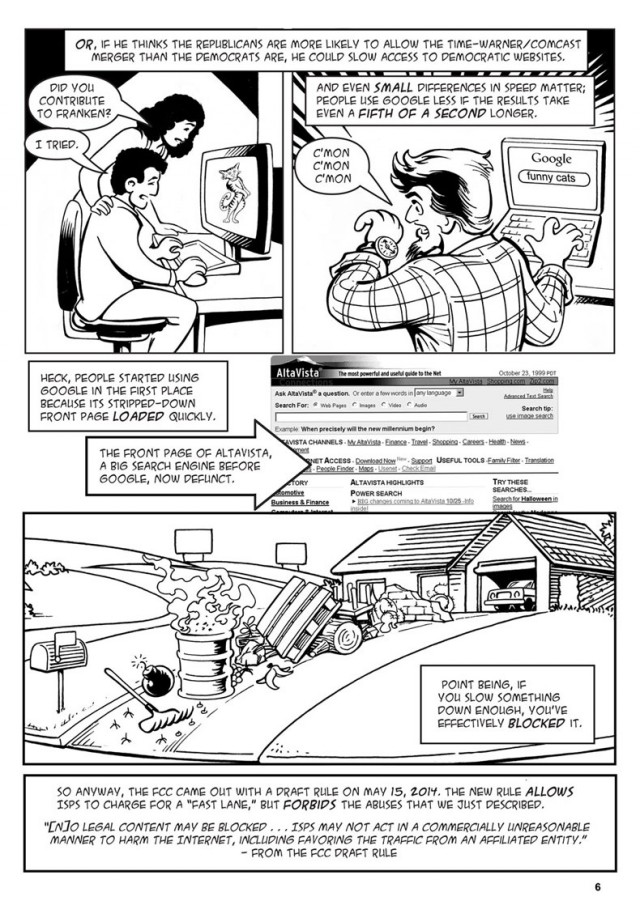
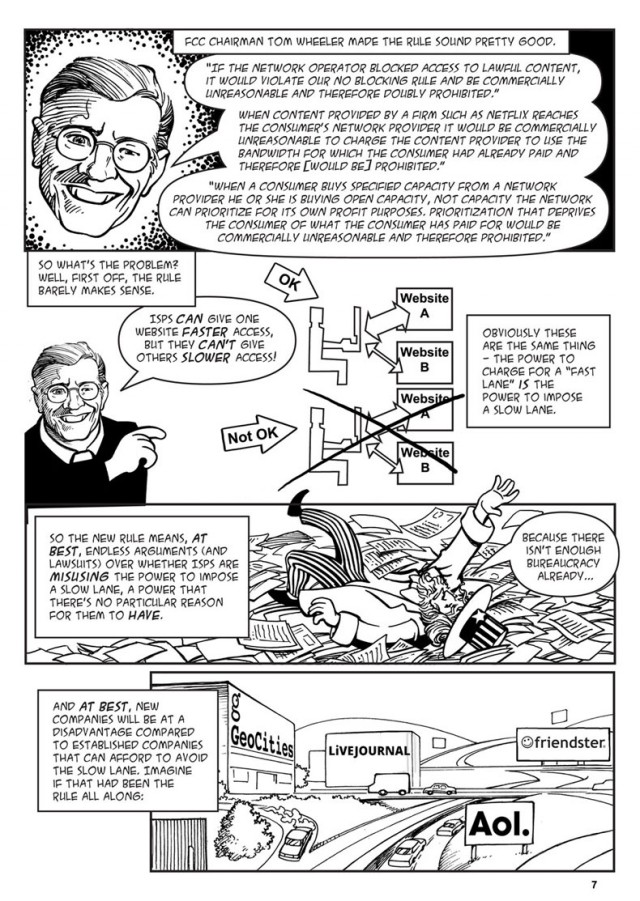
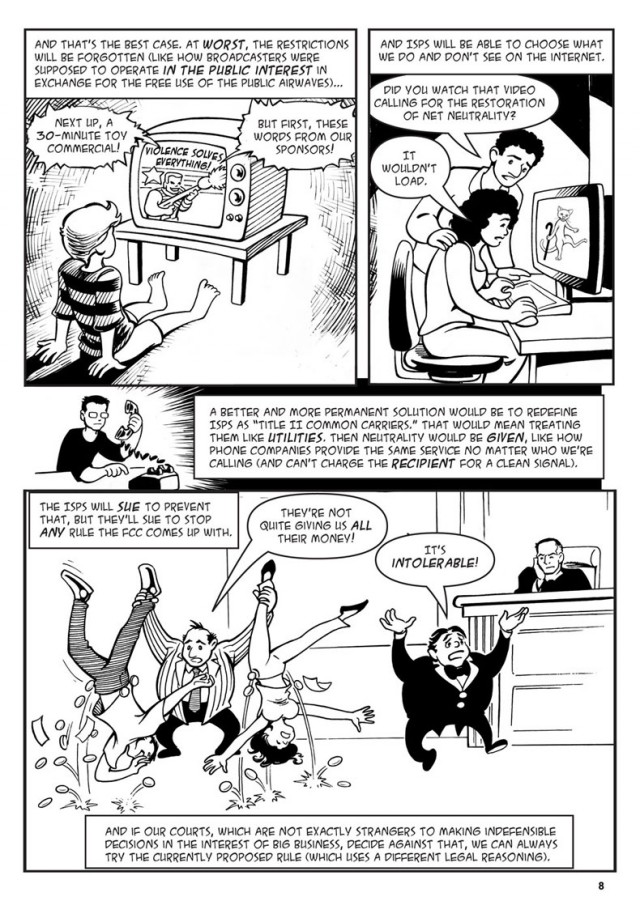
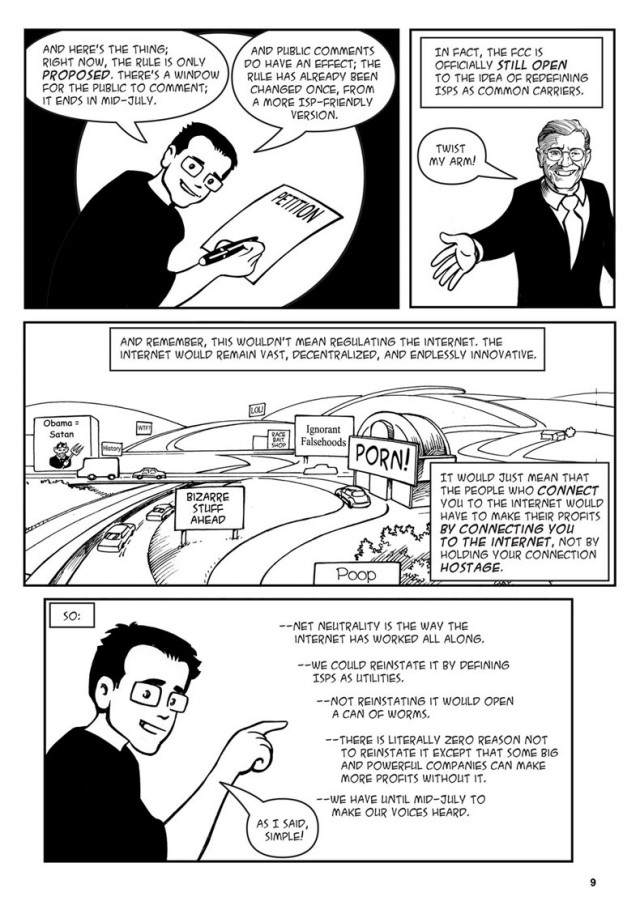


 Powell and others made certain that Internet Service Providers would not be classified as “common carriers,” which would require them to rent their broadband pipes at a reasonable wholesale rate to competitors. The industry and their well-compensated friends in the House and Senate argued such a status would destroy investment in broadband expansion and innovation. Instead it destroyed the family budget as prices for mediocre service in uncompetitive markets soared. Today, consumers in common carrier countries including France and Britain pay a fraction of what Americans do for Internet access, and get faster speeds as well.
Powell and others made certain that Internet Service Providers would not be classified as “common carriers,” which would require them to rent their broadband pipes at a reasonable wholesale rate to competitors. The industry and their well-compensated friends in the House and Senate argued such a status would destroy investment in broadband expansion and innovation. Instead it destroyed the family budget as prices for mediocre service in uncompetitive markets soared. Today, consumers in common carrier countries including France and Britain pay a fraction of what Americans do for Internet access, and get faster speeds as well.